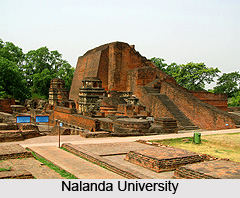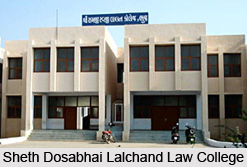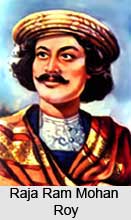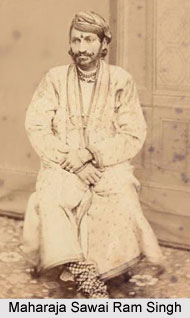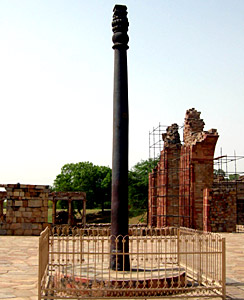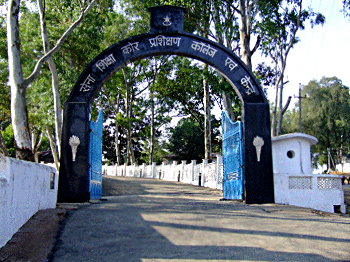Entrance tests for management are the first stepping stone towards a bright and shining career in the highly demanding management field. These entrance exams for the professional management degree programmes are organized for selecting the right candidates for the right course. The entrance tests for management are specifically designed with the objective to measure the aptitude of the candidate, and the general skills as expected of would be manager or an organizer. The management entrance tests are usually of multiple-choice type, where each of the questions is provided with multiple options and the candidate has to choose the right one. Every year, a large number of aspirants sit for these entrance tests for getting admissions to some of the reputed management institutes of the country.
Application Forms
The information regarding the application forms and the associated details about the last dates of submissions are usually provided in the national dailies of the country. Students can collect the application forms either by post or they can simply download the application forms from the official websites of the concerned management institutes or the organizing board. In that case, a demand draft and the essential documents should be enclosed along with the completed application forms.
Eligibility Criteria for Entrance Tests for Management
Generally, the management programs are open to candidates coming from any discipline of study. The minimum criterion is a bachelor`s degree or a graduate degree in any stream under a recognized and affiliated university. Final year graduate students can also apply. The candidates need to obtain a minimum percentage in their bachelor degree programmes that are different from management degrees. However, there is no age bar for the interested candidates.
Courses offered
Some of the core management courses offered by the renowned management institutes of the country are as follows -
• Post Graduate Diploma in Management (PGDM) with specializations in Insurance, Management, HR, Finance, Marketing, Operations, and International Business, Actuarial Science, Capital Markets, Retail Management, Services Management
• Post Graduate Diploma in Information Technology & Management (PGDITM)
Pattern of Examination
The pattern of the entrance tests for management may vary from one institute to another institute. The number of questions per section and the marks assigned for a correct answer may also vary. The pattern of the entrance tests generally changes every year. Generally, the duration of the test is of 2 to 3 hours and the total number of questions may vary within 150 to 250.
The Contents of the management entrance tests broadly consist of the following sections:
• Verbal Ability Test section that includes questions based on Antonyms, Synonyms, English Usage, Sentence Sequencing, Sentence Completion, Logical Arrangements and Arguments
• Reading Comprehension section that includes questions based on Passages
• Quantitative Ability Test - it comprises questions on Number Systems, Percentages, Ratios and Proportions, Profit & Loss, Interests, Timework and Time-Distance
• Data Interpretation Skills section consists of topics like Charts and Tables, Graphs and Functions based problems
• Logical Ability Test section consists of the contents such as Analogies, Logical Clustering, Mathematical Logic and Critical Reasoning
• General Awareness tests section checks the level of general awareness among the candidates
Selection Process
The parameters that are used to measure the capability of the student in the written test are -
• The accuracy and speed of answering the questions are considered important in the entrance tests as it indicates the ability of the individual to handle the pressures.
•The focus is on the overall performance, with reasonably good performance in each section.
• Further, one has to score a minimum of marks in each section to be eligible for being considered for over all ranking.
The selected candidates after the written test are called for a group discussion and personal interview. Here the candidate`s ability is assessed in terms of his/her behaviour, communication skills, contribution of ideas facilitating a discussion, the range and depth of his/her knowledge on topics of general interest and initiative qualities. Candidate`s suitability for the management programme is assessed on basis of various personal attributes such as confidence, body language and ability to handle pressure.
Other requirements that determine the selection of the candidates are past academic performance records and work experience (if any).
Syllabus
For the entrance tests for management, there is no pre-defined syllabus. The management tests are described as aptitude tests that measure the analytical and knowledge skills of the aspirants. The candidates need to remember that the tests usually carry questions from diverse categories such as verbal ability and reasoning, logical reasoning, quantitative skills, reading comprehension, data interpretation, etc. So, students have to prepare accordingly.
List of Management Entrance Exams
1. ATMA (AIMS Test For Management Admission)
2. CEMAT - Admission test for Commonwealth Executive MBA & MPA Programmes
3. Common Admission Test (CAT)
4. ICFAI Business School Aptitude Test (IBSAT)
5. Indian Institute of Foreign Trade (IIFT) MBA Admission Test
6. Integrated Common Entrance Test (ICET)
7. Joint Management Entrance Test (JMET)
8. Karnataka Management Aptitude Test (K-MAT)
9. Management Aptitude Test (MAT)
10. National Aptitude Test (NAT)
11. National Council for Hotel Management and Catering Technology
(NCHMCT) - Joint Entrance Examination (JEE)
12. National Management Aptitude Test (NMAT)
13. Open Management Admission Test (OPENMAT)- Indira Gandhi National Open University (IGNOU)
14. Rajasthan Management Admission Test (RMAT)
15. Symbiosis Entrance Test (SET) for Symbiosis Undergraduate Institutes of SIEC Deemed University
16. Symbiosis National Aptitude (SNAP) Test
17. Written Admission Test (WAT)- Army Welfare Education Society (AWES)
18. Xavier Admission Test (XAT)
Entrance tests for management are the mode through which various renowned management institutes judge the potential of the students whether they are capable of pursuing the professional management degree courses.
